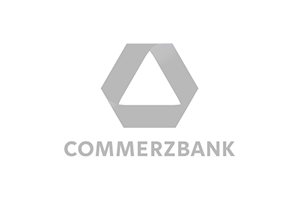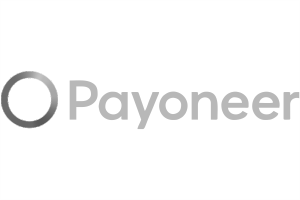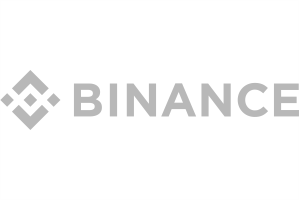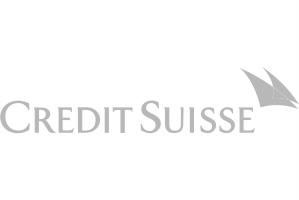Considering that the transactions were observed by representatives of the prosecutor’s office, they can be considered official and legal. Real estate can be purchased for alternative currencies – for example, Etherium, with subsequent conversion into Euros.
Regulation review of cryptocurrency exchange license in Montenegro
The main regulators whose competence extends to the field of blockchain are the Central Bank, the Securities Market Commission, and the Ministry of Finance of Montenegro. None of these bodies issued policies or industry reviews, nor did they impose any restrictions on investors. Regulators’ actions, in particular, the Ministry of Finance, are aimed at removing barriers to the activities of business entities in the blockchain field, and at the same time, the sphere is under their scrupulous supervision.
Local regulatory legislation is adapted to EU standards and requirements. Cryptocurrency is not regulated as an official means of payment, but its possession and/or use is not clearly prohibited. The established practice of crypto assets turnover is based on the fact that transactions with cryptocurrencies are carried out at your own risk. According to the Central Bank, cryptocurrencies do not affect the local banking system, and also are not a threat to it.
When evaluating the nature of crypto assets, the preliminary conclusion of regulators is used that such assets are inherently closer to electronic securities than to fiat currencies due to the fact that (1) their functions as a means of payment are limited; (2) they are not unit cost, (3) they are not a storage cost.
The definition of virtual currencies was first included in legislation on the combating of money laundering and terrorist financing. Virtual currencies are defined as electronic means of value that (1) are not issued by a Central Bank or any other public authority, (2) are not necessarily tied to traditional currencies, (3) are accepted by individuals or legal entities for exchange, and (4 ) may be transferred, stored or subject to electronic commerce.
And while cryptocurrencies are not limited, there is no integrated regulation of them in the country. Legislation and regulators deal exclusively with issues of funds transferring, as well as combating money laundering and the financing of terrorism. In selected cases, cryptocurrencies are subject to legislation that relates to the regulation of the transfer of assets, financial instruments, as well as funds.
Features of the crypto-business organization in Montenegro
There is no clear regulation of the crypto-field and a direct ban on the non-fiat funds’ exchange and circulation in the state. However, even though a license for cryptocurrencies is not issued, exchanges and exchangers should adhere to the rules adopted in the country and in Europe. Montenegro plans to join the European Union in the next few years; it upgrades financial legislation and takes into account the provisions of EU directives. Therefore, crypto platforms should:
- register a company with a “physical” office in the country – given the uncertain prospects for cryptocurrencies licenses in this country, it is desirable to divide functions between several legal entities, diversifying the risks;
- open a local bank account for work;
- take care of the implementation of AML legislation (this is a Pan-European rule for recipients of licenses for the cryptocurrency exchange) – the company must have policies to counter money laundering and terrorist financing, internal control rules, technical means of suspicious transactions tracking, etc.;
- prepare the basis for fulfilling KYC requirements for the personality identifying data disclosure, while at the same time taking care of the customer information protection and user agreements drafting.
How to register cryptocurrency exchange license in Montenegro
To obtain a cryptocurrency exchange license in Montenegro, it is necessary to analyze in detail the nature of the assets, as well as to determine a specific list of legal rules that the company-potential recipient of the license must comply with. There are no special legislative acts that would regulate the obtaining of a separate license to deal with such assets in this jurisdiction.
The process of obtaining a license covers the following approximate steps:
- The nature and characteristics of crypto assets analysis, transactions with which are planned to be implemented.
- The collection of information about a potential licensee, including its beneficial owners.
- Development of internal rules of work, risk assessment, and compliance.
- Determination of the management and authorized persons of the future licensee.
- Filling out registration forms and creating a package of documents for registering a license.
- Submission of a package of documents for obtaining a license with the possible subsequent provision of additional information to the regulator.
- Issuance of a license if approval is obtained.
Each specific case of obtaining a license differs depending on the goals and characteristics of the business organization. “Aotopay” lawyers will be happy to develop a detailed action plan for you.
Compliance basics
Cryptocurrency exchange license usage requires the recipient to comply with legislation on combating money laundering and terrorist financing. In this case, the general rules of law apply, taking into account the specifics of the assets involved. Inter alia, the following actions are needed to be taken:
- to identify and assess the risks associated with the transactions under consideration;
- to develop and implement measures aimed at anti-noney laundering and countering the financing of terrorism;
- to make customer identification;
- to monitor the activities of customers;
- to provide competent authorities with (1) reports on their activities, as well as (2) information, data and documents necessary for the prevention of money laundering and terrorist financing;
- to appoint persons authorized to implement the required measures and monitor compliance with relevant legislation;
- to regularly educate employees who work on compliance issues;
- to develop and regularly review a list of indicators of suspicious transactions and customers;
- to keep records of all transactions, as well as personal and other data about customers;
- to establish and ensure the operation of a system for constant monitoring of operations with crypto assets;
- to identify politically exposed persons.
The specific compliance format depends on the source data of each case. Lawyers of “Aotopay” will be happy to develop a case-by-case approach to resolving this matter.
Features of taxation
The local tax authorities did not provide any explanation regarding the special taxation regime for crypto assets. The legislation does also not provide special rules regarding the taxation of income, profits and capital gains from operations with crypto assets. Transactions involving this type of assets require their amount to be indicated in one of the fiat currencies, for example, in euros.
Those are the exact amounts, denominated in fiat currencies, that are taken into account to determine the tax liabilities of parties to transactions.
“Aotopay” is the whole range of support in the registration and licensing of cryptocurrency business
The “Aotopay” company completes paperwork for the cryptocurrencies exchange licenses and helps with the registration and legalization of the business related to the Fintech-field, virtual financial products, and non-fiat currencies. Experts will select the jurisdiction for you, draw up a strategy of actions, corporate and tax scheme, help with organizational issues and technical side. We will:
- prepare a registration package of documents in the selected organizational form;
- get a certificate, open a bank account;
- create a documentary basis for meeting the requirements of AML / KYC, prepare a business plan, describe technical capacities, etc.
- take care of further legal support of activities in the field of cryptocurrencies in Montenegro and abroad.
With “Aotopay”, you will legally, without loss of time and effort, begin to work in a promising niche.








